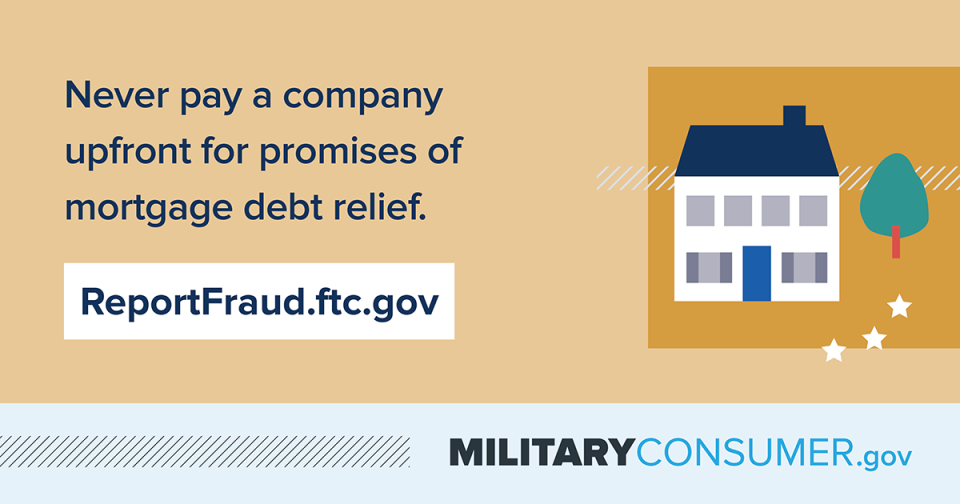Mortgage interest rates may be on the way down, but scammers’ false promises are likely on the way up. If you’re looking to lower your mortgage payment — by refinancing your home or VA loan — learn about your options and how to avoid mortgage relief scams.
Scammers will say just about anything to get you to trust them. Some scammers call or email claiming they’re from the Department of Veterans Affairs or your home loan servicer. They’ll promise to help you lower your mortgage payment — for an upfront fee or a retainer. But it’s illegal for a company to charge you before they help you with things like debt relief or improving your credit. And only scammers will tell you to cut off contact with your lender, housing counselor, or credit counselor. They might say they’ll handle any loan paperwork for you, but they’re just trying to steer you away from the real help you’re looking for.
Want to avoid a mortgage relief scam? Slow down and check things out for yourself. Always start by contacting your mortgage servicer or lender first. They’ll know the current status of your loan and can help you explore options to lower your payment. Here are a few other places to get legitimate help:
- Department of Housing and Urban Development (HUD). Your local HUD office or the housing authority in your state, city, or county can help you find a legitimate housing counseling agency nearby.
- Department of Veterans Affairs (the VA). If you have a VA home loan, contact them directly to get the most accurate information about your loan terms and help you check for options to lower your payment — for free. Just make sure anyone helping you is accredited by the VA.
Visit consumerfinance.gov/housing to get information from the Consumer Financial Protection Bureau (CFPB), HUD, and VA all in one place.
If you spot a mortgage relief scam, report it to your state attorney general and the Federal Trade Commission at ReportFraud.ftc.gov.

